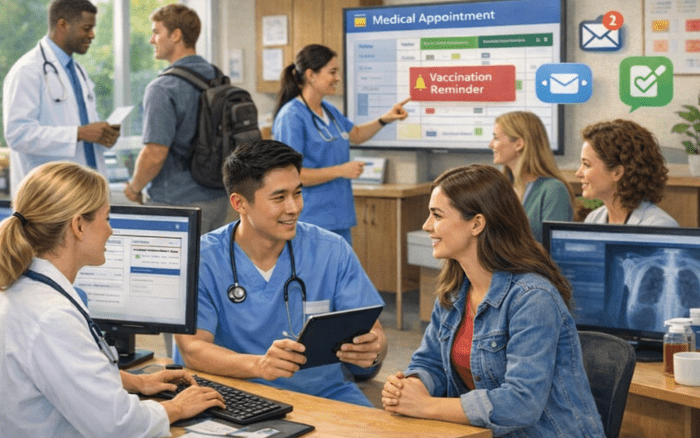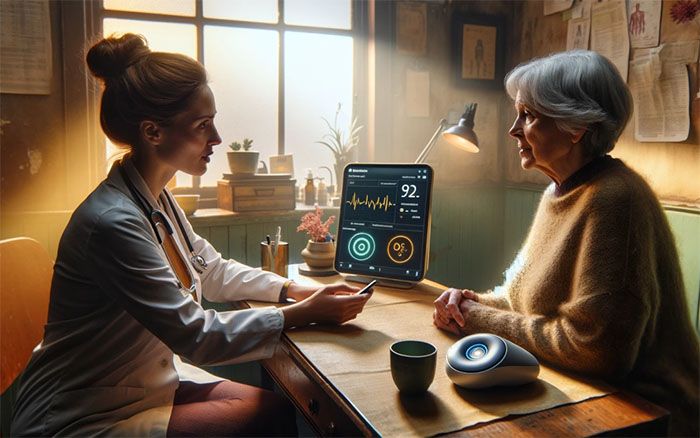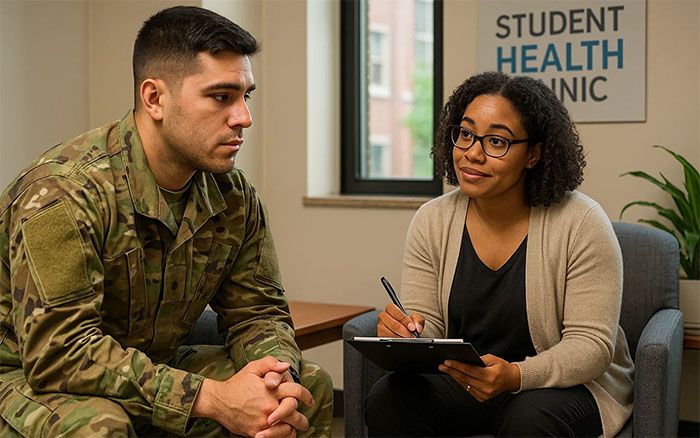How Electronic Health Records (EHRs) Improve Student Care in Boarding Schools
Boarding schools create a unique environment where education, wellness, and residential life intersect. With students living on campus, school health professionals play a vital role—not just in treating illness or injury, but in promoting ongoing wellness, managing chronic conditions, and supporting student mental health.
In this setting, having timely, coordinated access to health information isn’t just helpful, it’s essential. Many boarding schools utilize Electronic Health Records (EHRs) to modernize and streamline student care.
In this blog, we’ll explore how EHRs are transforming student care in boarding schools by:
- Creating a single, centralized record for each student’s health
- Enabling faster, more informed responses during emergencies
- Improving communication across health, counseling and wellness teams
- Automating immunization tracking and compliance tasks
- Supporting mental health services with secure, HIPAA-compliant tools
- Providing data-driven insights through reporting and analytics
1. A Single Source of Truth for Student Health
Boarding schools often have multiple touchpoints for student care: nurses, counselors, athletic trainers, and sometimes even off-site providers. Without a centralized system, it can be easy for important health details to get lost in the shuffle.
EHRs solve this by creating a comprehensive, secure record for each student. All relevant information lives in one place, from immunizations and allergies to mental health notes and medication logs. This improves continuity of care, especially when students transition between departments or return from school breaks.
P.S. – Learn about the benefits of Patient Portals here.
2. Fast, Informed Response During Emergencies
When students need urgent medical attention, having immediate access to their health history can make all the difference. With an EHR, school staff can quickly retrieve information like emergency contacts, pre-existing conditions, or prescribed medications, helping them respond with confidence and clarity.
Additionally, EHR systems also support customized care plans and alerts, so high-risk students receive the attention they need without delay.
3. Better Communication Across the Care Team
Health, counseling and wellness in a boarding school is a team effort. EHRs foster stronger collaboration between campus departments by making it easy to share relevant updates securely and efficiently.
With features like internal messaging, appointment notes, and shared access (based on permissions), staff no longer have to rely on paper forms or word-of-mouth to stay aligned. Everyone has the right information at the right time.
4. Simplified Compliance and Immunization Tracking
Managing immunization records, physicals, and health forms can be time-consuming, especially with out-of-state and international students and rolling admissions.
An EHR automates many of these tasks by:
- Tracking required vaccines and alerting staff when a student is out of compliance
- Making it easy for families to upload documents securely
- Generating reports for audits or state requirements
Comprehensive immunization compliance management tools not only reduce the administrative burden on staff, but also help schools stay compliant with evolving health regulations.
5. A More Coordinated Approach to Mental Health
Today’s students are navigating a wide range of mental health challenges. EHRs support growing mental health demand by offering confidential, HIPAA-compliant tools for mental health professionals.
Secure notetaking, appointment scheduling, and treatment planning allow counselors to track progress over time while maintaining student privacy. When needed, care can also be coordinated across departments to provide a more holistic support system.
6. Actionable Insights Through Reporting and Analytics
Furthermore, EHRs don’t just help in the moment. They also provide valuable data that can inform long-term decisions. Tracking trends like frequent visit reasons, peak illness times, or increased mental health appointments can help schools gain a clearer picture of their students’ needs.
These insights can support funding requests, guide staffing decisions, and help boarding schools develop programs that proactively address health concerns before they escalate.
Key Takeaways
At the end of the day, a school’s ability to support student health impacts every part of the boarding experience—from academic success to emotional well-being. Implementing an EHR system is one of the most effective ways to ensure safe, consistent, and high-quality care for every student on campus.
Looking to modernize your boarding school’s approach to student health?
P.S. – Learn more about our new eMAR offering – helping simplify the medication management system for boarding schools like yours! See how it works!














